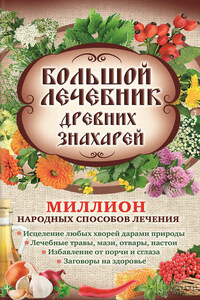The great grammarian H.W. Fowler didnât mince his words on the practice of using foreign terms and expressions designed to go over the heads of the average English reader. âTo use French words,â he wrote, âthat your reader or hearer does not know or does not fully understand ⦠is inconsiderate and rude. Display of superior knowledge is as great a vulgarity as display of superior wealth.â
Nevertheless, this infusion of foreign expressions into our reading, in newspapers, magazines and books, is a fact of life whether we like it or not. We have the choice, when encountering yet another burst of italics, of groaning and fetching the dictionary, with an excellent chance of searching in vain for the word or phrase, or blithely leaping over the intrusion and reading on, saddled with guilt and ignorance.
Perhaps we should remind ourselves that English, in any case, is a language that over the centuries has picked up words as a magnet picks up iron filings, so nothing has really changed. Take Schadenfreude, a German word meaning âtaking malicious pleasure from anotherâs misfortuneâ. A decade or so ago youâd rarely have seen this word in print; now itâs everywhere. In fact it is now considered to be naturalised into the language, it often loses its German capital âSâ, it is featured in most English dictionaries, and fewer writers bother to italicise it any more.
That process has been repeated with tens of thousands of words, terms and sayings from other languages. Many of them are now so embedded in English that we simply couldnât do without them. Examples include tête-à -tête, vis-à -vis, bête noire and bon mot from the French; ad hoc, âet ceteraâ and post mortem from Latin; âleitmotivâ, gesundheit and âwunderkindâ from German; âombudsmanâ from Swedish, not to mention several hundred musical and operatic terms from Italian.
Perhaps this cherry-picking is a reflection of our ineptitude with other languages, for we are, among Europeans, at the bottom of the linguistic league, only a whisker ahead of Ireland. The proportion of Britons able to speak a foreign language is the lowest in the EU, where almost 100% of young people in Luxembourg, Denmark and Holland can speak a second language, most often English.
This book is not going to rectify the situation, but it may help us when we encounter a foreign word or saying which we do not understand. Indeed, it may even encourage some of us to use, with confidence, the odd mot juste in letters or reports or in our everyday speech.
No compilation of this kind can ever claim to include every foreign word, phrase or quotation waiting to trip us up. With some 6000 languages in the world, and with many of them containing thousands of words that might express a thought more aptly or colourfully or economically than our home-grown variety, such a collection is impossible to imagine.
But here, at least, is a concise selection that should prove useful to the contemporary reader and writer. It excludes many foreign words that now reside in any good comprehensive dictionary. It also excludes specialist terms, including those connected with music and opera; these will be found in most English dictionaries. On the other hand it includes a good many colloquial and even vulgar expressions not to be found in dictionaries but which are common enough in speech and print. The rationale behind this book is relevance to contemporary needs.
In the spirit of the Wordpower series of books on English usage and effective communication, the tone here is light, even light-hearted, and leavened throughout with intriguing and humorous observations on the worldâs languages and how we exploit them.









